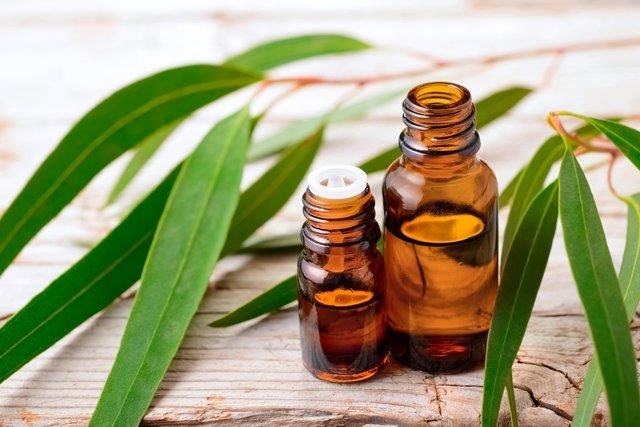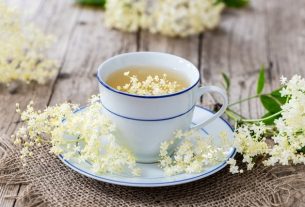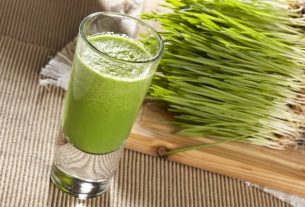Eucalyptus is a medicinal plant rich in tannins, flavonoids, aldehydes and volatile oils, such as cineol and terpineol, which give it antiseptic, decongestant, antispasmodic and antimicrobial properties, and are therefore widely used as a home remedy in the treatment of respiratory problems, such as flu, colds or sinusitis.
The scientific name of eucalyptus is Eucalyptus globulus and the part normally used are its leaves or essential oil, for tea preparation, inhalation, compresses, baths or to aromatize the environment.
Eucalyptus can be easily found in herbal or health food stores, but should be used with guidance from a doctor or other health professional who has experience with the use of medicinal plants.
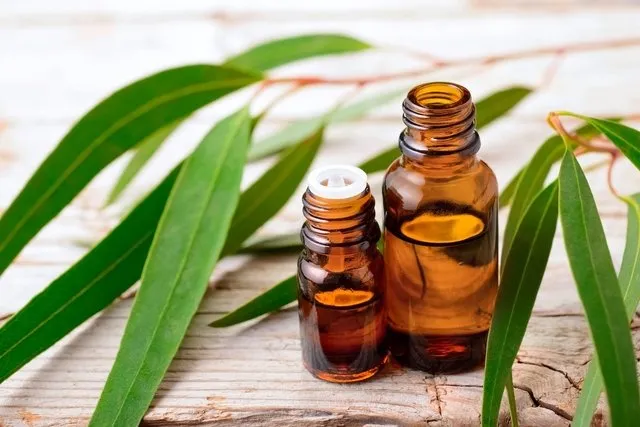
What is it for
Eucalyptus has several health benefits, the main ones being:
1. Fighting respiratory problems
The cineole present in eucalyptus has expectorant, mucolytic and anti-inflammatory properties, which help stimulate breathing, relieve coughing, increase the elimination of phlegm and relax the respiratory muscles.
In this way, eucalyptus essential oil can be used in the form of inhalation to help fight respiratory problems, such as flu, colds, cough, stuffy or runny nose, sore throat, asthma, bronchitis or sinusitis, for example.
However, some people may have more sensitivity to the essential oil released by eucalyptus, which may worsen the respiratory problem. Therefore, its use should be done only with guidance from the doctor or herbalist.
2. 2. Helping in the healing of the skin
The essential oil of the eucalyptus leaf has antiseptic, anti-inflammatory and antibacterial action, and can be used on the skin to accelerate the healing of superficial and closed wounds, such as burns, cuts or scratches.
In addition, eucalyptus essential oil also contains macrocarpal A, a substance that, when applied to the skin, stimulates the production of ceramide, which is a type of fatty acid responsible for maintaining the barrier of protection of the skin and retaining moisture. Therefore, it can be a good natural way to fight dry skin, dandruff, dermatitis or psoriasis. See other benefits of eucalyptus essential oil.
3. Strengthen the immune system
Eucalyptus is rich in essential oils, with anti-inflammatory and immunomodulatory action, which help strengthen the immune system, stimulating the action of white blood cells, which are defense cells, preventing and helping in fighting respiratory system infections, such as flu, colds or sinusitis, for example.
4. 4. Fight the pain
Eucalyptus is rich in substances with analgesic action, such as cineole, terpineol and limonene, which help fight pain, as they are easily absorbed by muscles or nerves, when the essential oil is applied on the skin for massage or used in aromatherapy.
A study (1) done with rats in the laboratory showed that the terpineol present in the eucalyptus used in the form of massage helped to relieve pain in the sciatic, by reducing inflammation and blocking nerve conduction, and thus reducing pain.
In addition, eucalyptus essential oil can help reduce muscle, tendon or nerve pain, and relieve symptoms of rheumatism or fibrosis, for example.
5. . 5. Improving the health of the mouth
Eucalyptus is rich in eucalyptol, ethanol and macrocarpal C, with antibacterial and antiseptic action, which helps remove and eliminate bacteria from the mouth that can cause gingivitis or bad breath. Thus, eucalyptus when used in the form of an infusion as a mouthwash can help maintain the health of the mouth.
6. . 6. Fight infections
Eucalyptus essential oil has antibacterial action and may be useful for fighting infections such as gastroenteritis or urinary infections, caused by the bacteria Staphylococcus aureus or Escherichia coli, for example.
However, the use of eucalyptus essential oil does not replace medical treatment for these infections, and should be used only to complement medical treatment. Find out how bacterial infections are being treated.
7. 7. Assistant in the treatment of cold sores
Because it contains antiviral, analgesic, anti-inflammatory, healing and antioxidant substances, eucalyptus can help in the treatment of cold sores, helping to relieve symptoms such as itching, burning sensation, redness and swelling.
Eucalyptus essential oil can be used in the form of ointments, found in pharmacies, from the first symptoms of cold sores to the appearance of wounds and, although it does not serve to replace medical treatment, it is a good natural option to relieve symptoms and accelerate the recovery of cold sores. See how the treatment of cold sores is done.
8. Help to relax
Eucalyptus essential oil, when used in the form of inhalation, can help to relax, because it has a calming and anxiolytic effect, which helps to decrease the activity of the nervous system, promoting relaxation, which can be useful to assist in the treatment of stress, anxiety or sleep problems, for example.
9. . . . . Preventing chronic diseases
Eucalyptus leaves are rich in flavonoids, such as catechin, luteolin, canferol, floretin, quercetin and isoramnetin, with potent antioxidant action, which help reduce cell damage caused by free radicals, which can help prevent cardiovascular disease or dementia.
However, more studies are still needed to prove this benefit.
How to use eucalyptus
The parts used of eucalyptus are dried or fresh leaves or essential oil, which serve to prepare tea, baths, compresses, inhalations, balms, make massages or aromatherapy.
It is important to emphasize that eucalyptus essential oil should not be ingested orally, as it can cause burns in the digestive system and kidney problems. In addition, to use on the skin, it should always be diluted in water or mixed in a “carrier” oil, such as mineral oil, coconut oil or sweet almond oil, for example, to allow eucalyptus essential oil to be better absorbed by the skin and does not cause irritation.
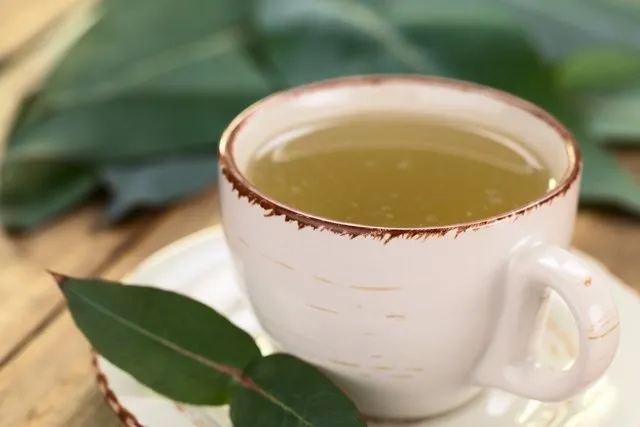
1. Tea of eucalyptus
Eucalyptus tea is widely used to relieve cold and flu symptoms, as well as help eliminate the pulmonary secretions accumulated during bronchitis.
Ingredients
- 1 tablespoon (spoon) of eucalyptus chopped leaves;
- 150 mL of water.
How to prepare
Add the eucalyptus chopped leaves in the water and boil for 1 minute. Turn off the fire, cap and let stand for about 5 minutes. Then, curp and drink 1 cup of tea 2 to 3 times a day.
2. 2. Inhalation with eucalyptus vapor
Inhalation with eucalyptus vapor is a good home remedy for respiratory problems, such as asthma, bronchitis, flu, colds and sinusitis, as it quickly relieves nasal congestion.
However, there are some people who may be more sensitive to the essential oil released by eucalyptus, and in these cases, there may be a worsening of symptoms. If this happens, this inhalation should be avoided.
Ingredients
- 5 drops of eucalyptus essential oil or 1 handful of fresh eucalyptus leaves;
- 1 liter of boiling water.
How to prepare
Add the drops of eucalyptus essential oil in the boiling water. Then, the head should be covered with an open towel, so that it also covers the container containing the solution of eucalyptus essential oil. Tilt your head over the container and inhale the steam as deeply as possible for up to 10 minutes, repeating 2 to 3 times a day. This towel helps keep the solution vapor for longer.
When finishing the inhalation, it is important to pass a wet towel in cold water on the face.
3. Bath with Eucalyptus
The bath with eucalyptus can be used to help relax, relieve muscle pain and aid in the treatment of respiratory problems.
Ingredients
- Branch of eucalyptus leaves.
How to prepare
Wash the branches of eucalyptus leaves to remove dust or impurities that may be present. Let it dry naturally. Then make a bouquet with the branches and hang in the shower pipe. It is important that the branches do not stay in direct contact with the bath water. Showering normally, while water vapor releases the essential oils into the environment, which when inhaling helps relax and relieve nasal congestion.
3. Aromatherapy with Eucalyptus
Aromatherapy is a technique that uses the aroma and particles released by essential oils to stimulate different parts of the brain. In the case of eucalyptus essential oil, aromatherapy can help relieve symptoms of anxiety, emotional tension, or stress as it has calming and sedative properties.
To make aromatherapy with eucalyptus, one must take deeply the aroma of the essential oil directly from the vial, holding the air in the lungs for about 2 to 3 seconds, before exhaling. Repeat inhalation 3 to 7 times, several times a day.
Another way to make aromatherapy with eucalyptus essential oil is to put 2 to 3 drops of eucalyptus essential oil in a little water, inside an electric aromatizer or in an environment diffuser. The amount of water used varies according to the capacity of the electric aromatizer or diffuser. The cloud of smoke or steam formed, allows to release the aroma throughout the room.
Another more economical solution to the use of the aromatizer consists of placing 10 drops of eucalyptus essential oil or 6 eucalyptus leaves in a basin with boiling water, for example, because as the water evaporates, the aroma is released into the air.
4. 4. Massage with Eucalyptus
Eucalyptus essential oil can also be used in relaxing massages due to its pleasant aroma and relaxing properties. See other benefits of massage with essential oils.
To massage, you should use 5 to 10 drops of eucalyptus essential oil mixed with 50 mL of a vegetable oil, such as coconut oil or sweet almond oil, for example. Then apply on the skin, gently massaging with your fingertips, for about 10 minutes.
Before using eucalyptus essential oil, an allergy test should be done, preparing a mixture containing 1 drop of eucalyptus essential oil in 1 spoon (coffee) of the carrier oil, and apply on the back of the hand or in the fold of the elbow. Wait 24 hours and, during this period the skin becomes red or irritated, the use of eucalyptus essential oil is not recommended.
5. . 5. Eucalyptus balm
Eucalyptus balm can be prepared to use on the breast to relieve symptoms of respiratory problems such as cold, flu, bronchitis or asthma.
Ingredients
- 10 drops of eucalyptus essential oil;
- 30 mL of almond oil.
How to prepare
Mix the ingredients in a clean and dry container. Then apply on the skin of the chest. The smell released by the balm helps to relieve the runny nose and clogged.
6. . 6. Compresses with eucalyptus
Eucalyptus can be used for inflammation of the skin, pain in the muscles or joints, pain in the sciatic, rheumatism or gout.
Ingredients
- 10 drops of eucalyptus essential oil;
- 60 mL of water.
How to prepare
Mix the ingredients and wet a gauze, cotton or cloth in this mixture. Then apply on the skin in the affected area.
Possible side effects
The most common side effects that may arise during the use of eucalyptus are nausea, vomiting, diarrhea, difficulty breathing, dizziness, feeling suffocation, tachycardia, drowsiness or hyperactivity.
In addition, the eucalyptus essential oil used on the skin, can cause dermatitis, skin irritation and burning sensation, so it should always be tested previously on a small area of skin.
Eucalyptus tea can also increase the action of the liver, causing the effect of some drugs to be reduced. Therefore, people who use some medication daily should consult the doctor to know whether it is safe or not to use eucalyptus.
Who should not use
Eucaptus should not be used by children under the age of 3 during pregnancy or breastfeeding, or by people who have digestive, gallbladder and liver disease, or allergy to eucalyptus.
Inhalations with eucalyptus should also not be used in children under 12 years, as they can cause allergies and shortness of breath. Also, eucalyptus preparations should not be applied to the face, particularly in the nose of babies, as they can generate allergies in the skin.
In addition, eucalyptus essential oil should not be used directly on the skin, without being mixed with a carrier oil or water, as it can cause irritation, burning sensation or allergy to the skin.

Sign up for our newsletter and stay up to date with exclusive news
that can transform your routine!
Warning: Undefined array key "title" in /home/storelat/public_html/wp-content/plugins/link-whisper-premium/templates/frontend/related-posts.php on line 12
Warning: Undefined array key "title_tag" in /home/storelat/public_html/wp-content/plugins/link-whisper-premium/templates/frontend/related-posts.php on line 13

